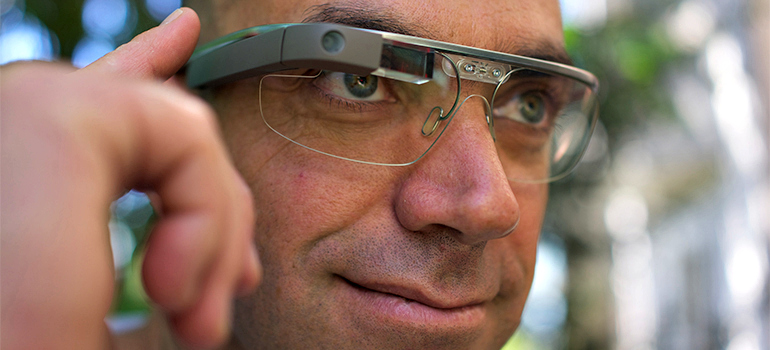

Wearers of smart glasses such as Google Glass can easily forget they’re recording what they see and despite the best of intentions, can violate other people’s privacy. That’s the suggestion of new research out of the Brain and Attention Lab in the University of British Columbia’s Dept. of Psychology.
For a study just published in the British Journal of Psychology, PhD student Eleni Nasiopoulos outfitted participants with an eye-tracking device that records eye movements and–just as Google Glass and other smart glasses do–the wearer’s field of view. It took only 10 minutes for study participants wearing eye trackers to essentially forget they were being monitored, shifting their gaze toward the buxom models of a Sports Illustrated calendar.
“We don’t really think about where we move our eyes to, most of the time,” explains Nasiopoulos. “Google gives tips like, ‘Ask people to record them, and be aware of invading other people’s privacy.’ What we found suggests that people will probably very quickly forget that they have the ability or potential to invade other people’s privacy.” Nasiopoulos’ study is the first scientific evidence to indicate that those concerns are well founded. “There is more and more technology with the ability to invade that privacy, and people may not realize how much of what they look at, and record, is inappropriate.”


Eleni Nasiopoulos
Read the full story on UBC News.
Eleni Nasiopoulos’s study, Wearable computing: Will it make people prosocial?, appeared in the July issue of the British Journal of Psychology. The work was conducted and published in collaboration with Drs. Evan F. Risko (Assistant Professor and Canada Research Chair at the University of Waterloo), Tom Foulsham (Lecturer at the University of Essex, England), and Alan Kingstone (Professor in UBC’s Dept. of Psychology). Funding was provided by grants from the Natural Sciences and Engineering Research Council of Canada , the Social Sciences and Humanities Research Council and the ICICS/TELUS People & Planet Friendly Home Initiative at UBC.
Photo of a Google Glass wearer: Loic Le Meur, Flickr.


